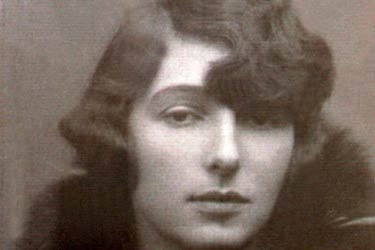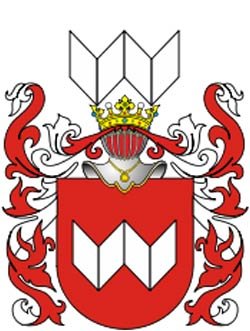Christine Granville, British Secret Agent
Biography, Book Reviews, Books, Christine Granville, Poland, WWII

Maria Krystyna Janina Skarbek, GM, OBE, Croix de guerre aka Christine Granville
Clare Mulley’s The Spy Who Loved, previously published in Britain, has just been released in the US. It is the biography of Christine Granville, née Maria Krzystina Skarbek, a Polish aristocrat who became one of the most daring and successful British secret agents of WWII. According to Wikipedia, Christine Granville may have been the model for Ian Fleming’s Vesper Lynd.
Emma Garman reviews it with appropriate admiration in the Book Beast:
[While] traveling in South Africa [and she] heard the news that Germany had invaded Poland, Christine harbored not the tiniest qualm about leaving… in a rush to defend her beloved homeland. Presenting herself to British Intelligence in London—“a flaming Polish patriot … expert skier and great adventuress,†according to their records—Christine volunteered to ski into Nazi-occupied Poland armed with British propaganda. Her fervent aim, writes Mulley, was “to bolster the Polish spirit of resistance at a time when many Poles believed they had been abandoned to their fate.â€
That mission, carried out with a Polish Olympic skier turned mountain courier, set the tone for Christine’s career in its sheer wildness. Heading out from Czechoslovakia during the coldest winter in living memory, with snow four meters deep, the pair traversed the 2,000-meter-high Tatra Mountains, seeing two dead bodies on their way and later hearing that, on the night they reached the border, more than 30 people had died in the mountains trying to escape Poland. Then, once on a Warsaw-bound train, Christine’s nerve did not desert her: realizing that armed guards were doing spot checks of passengers’ possessions, she directed the beam of her preternaturally bewitching allure onto a uniformed Gestapo officer. Would he mind, she wondered, carrying the package of black-market tea that she was bringing her mother? He happily obliged, and so her sheaf of illicit documents—which, if discovered, would have led to merciless interrogation followed by the firing squad—reached their destination.
Such boldfaced aplomb would be deployed time and time again in dealing with the Nazis. When working for SOE (Special Operations Executive, the secret wartime sabotage unit) in the Alps, where she trekked between the French and Italian sides and transmitted vital information about enemy activity, Christine was stopped by the German frontier patrol. In her hand she held a silk map of the region, given to agents to avoid the giveaway rustle of paper in pockets. With no hope of concealing it, she casually shook the fabric out and used it to replace the headscarf she was wearing, greeting the soldiers in French as if she were simply a local on an errand. Another time she and Andrzej Kowerski, her on-off lover and frequent partner in crime, were arrested and interrogated by Gestapo officers in Budapest. Christine had been suffering from flu, so she exaggerated her hacking cough and bit her tongue so hard that she appeared to be bringing up blood. Presumed to be infected with tuberculosis—potentially fatal and frighteningly infectious—she and Kowerski were released.
Christine’s most jaw-dropping act of heroism would occur in August 1944: with a bounty on her head and her face having graced “Wanted Dead or Alive†posters, she strolled into a Gestapo-controlled French prison and, posing as another woman entirely, secured an interview with a corruptible gendarme. Every iota of her charm and resourcefulness coming into play, Christine successfully arranged to break out three colleagues—including her lover du jour, the 29-year-old Belgian-British agent Francis Cammaerts—who were about to be executed. “Good reading,†an SOE officer wrote on the cover note of Cammaerts’ subsequent report, “I am going to make sure that I keep on Christine’s side in future.†“So am I,†another scribbled in reply. “She frightens me to death.â€
—————————————————–
2012 review from the Spectator by Alistair Horne, titled “Bravest of the Brave:”
Of all the women agents who risked their lives in Nazi-occupied Europe in the second world war, Polish-born Krystyna must surely rate as one of the bravest of the brave. As they used to say in army vernacular, the George Medal (which was about as close to a VC as a foreign national could get), the OBE and the Croix de Guerre did not exactly ‘come up with the rations’.
Churchill is alleged to have rated Skarbek his ‘favourite spy’. The reason? In spring 1941 she passed minute details to London of Hitler’s plans for Barbarossa, the invasion of Russia. Churchill forwarded them on to Stalin, who promptly binned them.
Krystyna’s father was from the lesser Polish aristocracy, but her mother was Jewish (she was eventually swallowed up by the Holocaust) — a fact that would have made Krystyna’s repeated journeys under the noses of the Gestapo infinitely more dangerous.
Six times she trekked and skied across the Tatras, ‘exfiltrating’ high-risk Polish refugees into neutral Hungary, accompanied by her one-legged, long-term lover, Andrzej Kowerski (aka Andrew Kennedy). Seldom conducting an operation without a lover (proof of the 007 notion that sex and extreme peril often make for inseparable bed-mates), Krystyna’s reckless exploits smacked more of the age of Baroness d’Orczy than of the vile century of Heinrich Himmler.
Several of the witnesses in Clare Mulley’s scintillating and moving book, such as the late Paddy Leigh Fermor, testify to the fact that Krystyna did indeed thrive, quite irrationally, on danger. With her ‘fierce, almost blind pride,’ she reminded one British officer of the Polish cavalry that had charged Nazi Panzers in 1939. Arrested in Hungary, on one occasion she bit her tongue so hard as to draw blood, persuading the interrogators that she had TB. They released her.
Krystyna’s most legendary exploit came in summer 1944, in southern France, pending the Allied invasion. Her British boss (and also, naturally, lover), Francis Cammaerts (DSO, Croix de Guerre, Légion d’Honneur), one of SOE’s top operatives, had fallen into a trap and was awaiting imminent execution. She located his cell by humming ‘Frankie and Johnny’. Cammaerts responded by singing the refrain. Then Krystyna presented herself boldly to the milice officer holding Cammaerts, as a British agent—and a niece of General Montgomery, no less — sent to obtain the release of the prisoners. The invasion, she persuaded Cammaert’s captors, was but hours away and terrible reprisals would be exacted if the prisoners were killed. Coupled with Krystyna’s devastating charm, the ruse worked. All three agents walked free.




